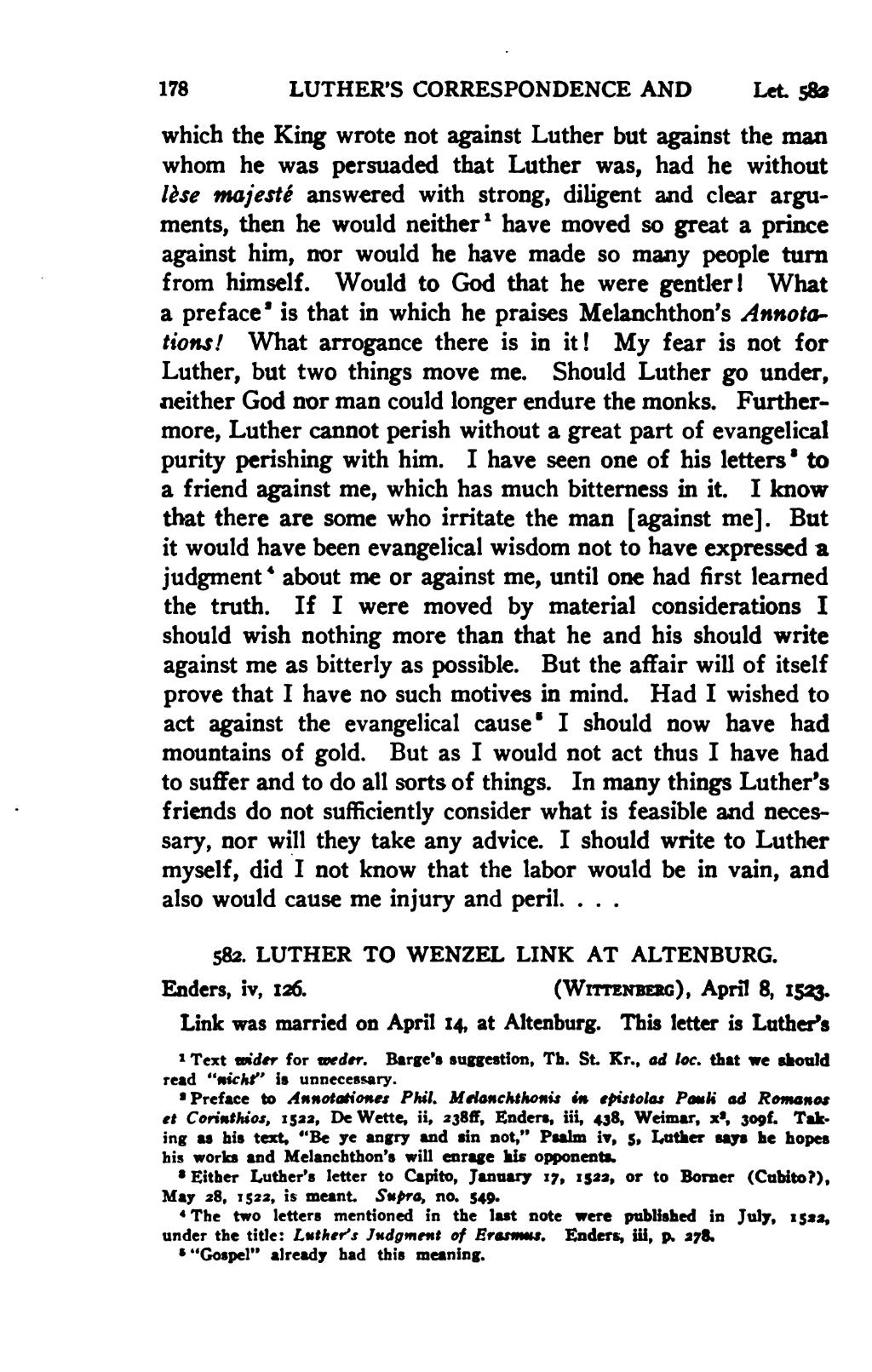which the King wrote not against Luther but against the man whom he was persuaded that Luther was, had he without Use majesti answered with strong, diligent and clear argu- ments, then he would neither^ have moved so great a prince against him, nor would he have made so many people turn from himself. Would to God that he were gentler 1 What a preface' is that in which he praises Melanchthon's Annota- tions! What arrogance there is in it! My fear is not for Luther, but two things move me. Should Luther go imder, neither God nor man could longer endure the monks. Further- more, Luther cannot perish without a great part of evangelical purity perishing with him. I have seen one of his letters' to a friend against me, which has much bitterness in it. I know that there are some who irritate the man [against me]. But it would have been evangelical wisdom not to have expressed a judgment ^ about me or against me, until one had first learned the truth. If I were moved by material considerations I should wish nothing more than that he and his should write against me as bitterly as possible. But the affair will of itself prove that I have no such motives in mind. Had I wished to act against the evangelical cause' I should now have had mountains of gold. But as I would not act thus I have had to suffer and to do all sorts of things. In many things Luther's friends do not sufficiently consider what is feasible and neces- sary, nor will they take any advice. I should write to Luther myself, did I not know that the labor would be in vain, and also would cause me injury and peril. . . .
582. LUTHER TO WENZEL LINK AT ALTENBURG. Enders, iv, 126. (WrrrENBESG), April 8, 15^.
Link was married on April 14, at Altenburg. This letter is Lather's
1 Text wider for weder. Barge's suggestion, Th. St. Kr., ad loc. that we skotild read **nichf* is unnecessary.
'Preface to AnnotaHones Phil. Melanehthonu in epistolas Pamli ad Romanes et Corinthios, 1522, De Wette, ii, 23SS, Enders, iii, 438, Weimar, x*, 309f. Tak- ing as his text, "Be ye angry and sin not," Psalm iv, St ItfUther says he hopes his works and Melanchthon's will enrage his opponents.
' Either Luther's letter to Capito, January 17, tS22, or to Bomer (Cubito?), May 28, 1522, is meant. Supra, no. 549.
^The two letters mentioned in the last note were published in July, xssa, under the title: Luther's Judgment of Brasmus, Enders, iii, p. 278.
- "Gospel" already had this meaning.
�� �
